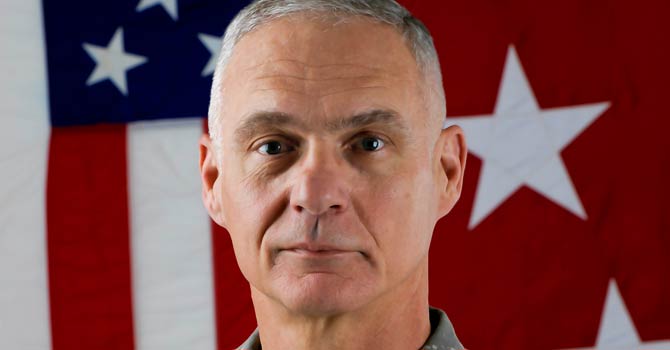WASHINGTON: The United States and Pakistan are moving away from the tense phase that marred their relations last year, according to a senior US commander in Afghanistan.
At a Pentagon briefing, Lt Gen. James Terry, Deputy Commander of the US Forces in Afghanistan, also said on Wednesday that after 2014, the United States would focus on providing `right resources’ to the Afghans so that they could hold territory from insurgents.
The United States plans to withdraw most of its troops from Afghanistan by December 2014 but plans to maintain a small but effective force there if Kabul grants legal immunity to those deployed in the country.
“From a military perspective, we are moving away from the tense phase with Pakistan,” said Gen Terry when asked about relations with Islamabad which nose-dived after a series of incidents last year put the two allies on a collision course.
The general, however, conceded that a trilateral mechanism, which aims to improve cooperation among the Pakistani, Afghan and US militaries will `take time to get in shape’.
But the US commander also noted that Pakistan and Afghanistan were now talking directly to each other on border issues, which was a good sign.
He said the cooperation centres the United States helped establish at Pak-Afghan border were also a mechanism to address these issues.
The process of flag meeting of Nato, Afghan and Pakistani military officials had also started.
The US general noted that Afghanistan and Pakistan were also talking to each other on political levels, which had a `potential’ to improving their ties.
Responding to a question, Gen Terry said it was difficult to say how many insurgents were still operating along the Pak-Afghan border, although some estimated them to be around 20,000.
Asked to comment on media reports that the insurgents may resurface after the US withdrawal, he said it’s difficult to predict future scenarios at this stage.
Gen Terry rejected a suggestion that the US withdrawal would make Afghanistan more vulnerable.
“We want Afghans to stand up, not stand alone,” he said, noting that the international community had made commitments to support Afghans during the transition period.
He pointed out that Afghan security forces had already started shouldering security responsibilities, terrorist safe heavens in the country had been greatly reduced and insider attacks were also being checked.
The US commander pointed out that some Afghan clerics had also started speaking against suicide attacks, which was encouraging.
Gen Terry said that since Afghan forces would not have adequate close air support, the United States would boost their surface fire capability.
He also signalled that US forces won’t just be sitting on their bases and advising headquarters staff.
“This is not simply about doing less,” the US general said, but rather about giving the `right resources’ to the Afghans, at the battalion-level and above, so they could hold territory from insurgents.
Gen Terry noted that `some of this training (of Afghan forces) will obviously have to be done in contact’ with insurgents — especially providing some of the `enabling capabilities’, like the air support that only the US can provide for now.












































